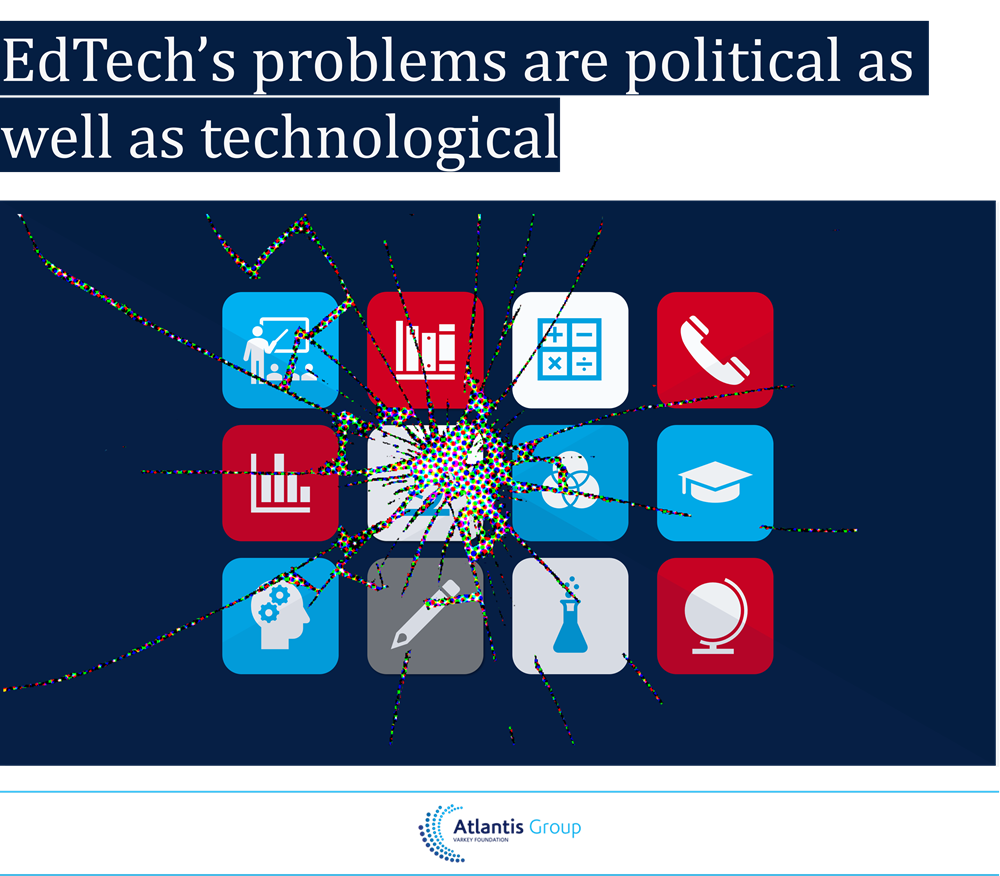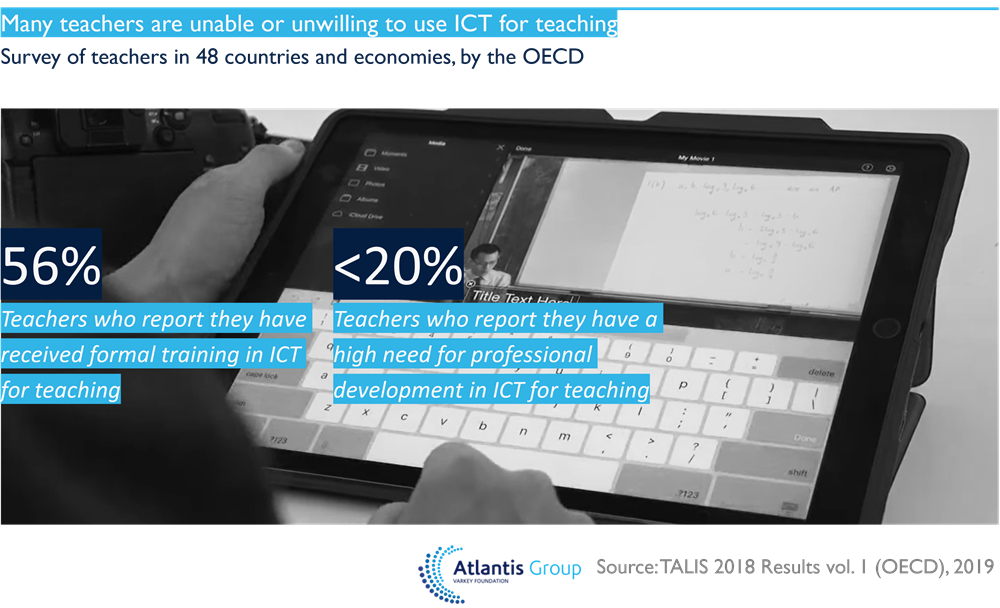
TODAY, THERE are more computers in schools than ever before. For decades, governments around the world have invested in ICT and EdTech. However, there is still little to no evidence that learning technologies have had a positive impact on learning outcomes at the national level. As a sector, EdTech is still struggling to make its mark on education systems. However, experts who spoke to the Atlantis Group for this report can also point to success stories in classrooms around the world.
The obstacles to learning technologies’ success at a system level are political as well as technological. Experts who spoke to the Atlantis Group identified a range of systemic issues. There is little independent evidence about which EdTech products improve learning outcomes, so popular but ineffective products stay on the market. Procurement processes are heavily fragmented, so effective technology doesn’t scale. Poor infrastructure in low and middle-income countries means that many schools don’t have functional access to electricity, let alone the internet. And teachers are often underequipped to use learning technologies. The answers to these issues won’t come from more tech. They will come from more effective policymaking.
So far, policymakers have used EdTech to retrofit traditional education systems. It could do so much more. Today’s EdTech can’t replace teachers, but it can augment good teaching. It can provide teachers and students with a wide diversity of resources that open new perspectives, illustrate concepts in new ways, and help to assess learning. It can help teachers to be more creative and innovative in their pedagogy. It can help to inform their decisions in the classroom, as well as to learn from their peers. It can help make education more accessible to disadvantaged learners. Learning tech is an important toolkit that every teacher should be able to use. But to do that, learning technologies themselves must be at the centre of education – not the periphery.


EdTech is also advancing quickly – and far beyond what today’s limited policy frameworks can adequately manage. The next generation of EdTech won’t replace teachers. But it will be able to shoulder the burden of many of their administrative tasks, and give them far more time to engage with their students. New personalization technology, for example, may help learners across a system to keep up with the curriculum. Big data from learning technologies may inform decision-making about education at a national level.
The future will also bring new challenges. As learning technologies advance, policymakers will also need to grapple with fundamental ethical questions. Ministers will need to increasingly think about the role of artificial intelligence in education. They will also need to take action to protect learners’ privacy in a world which relies on the systematic collection of personal data.
Education ministers should recognize that a piecemeal approach to EdTech is no longer adequate. Our global society is already being rewritten by technology. Unless policymakers work to harness its power, tech will be an increasingly disruptive force in education. From smartphones in the classroom, to learning apps outside of it, learners will be increasingly distracted by the technology around them. The answer is to integrate learning technologies into education systems, rather than to retrofit education systems around them.
To start with, ministers of education need to have a clear view of the changes they want tech to drive in the classroom. They can then take action across four key areas. They should prioritize evidence-gathering about EdTech, by setting up testbed schools and by keeping themselves updated about other initiatives across the world. They should support teachers, by listening to their needs and training them adequately to use learning technologies. They should make sure that the right products are reaching the market, by publishing clear purchasing guidelines. And they should make learning technologies part of their wider education strategy, by setting up a cross-sector EdTech task force.
These steps would help governments to demolish the political obstacles to effective EdTech. They would build the capacity of teachers to use learning technologies. They would also help to build communities around EdTech of educators, businesses and civil society. These ecosystems, in turn, would help to generate evidence about what works, and to scale effective tech across the education system.
Governments should also recognize that the ultimate obstacle to EdTech’s success is the educational system itself. To make EdTech work, education systems need to accommodate a fundamental shift toward data-driven learning. Such a shift cannot happen overnight. But there are incremental steps that today’s ministers can take to put their systems on the path.


